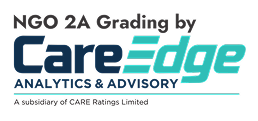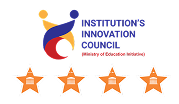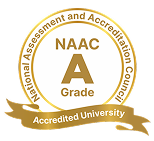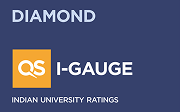

You may interested in
- The Mother Nectar: Nourishing Bond Through Breast feeding
- Awareness of Millet
- Export Talk on Honey production and Processing and Organic Mushroom Drying
- Unlocking Insights: Harnessing Power BI for Advanced Data Analytics
- Mastering Advanced Research Methodology with Practical SPSS Application
- Mera Yuva Bharat (My Bharat) Boot Camp on Youth Spicepreneur
- Women Empowerment in Agriculture: Enhancing nutrition and Opportunity
- Polyherbal Power Packet: Exploring the development and Nutritional, Organoleptic and Biochemical
- Exploring Nutritional Perception and Quality Distribution Of value Added Horse Gram Soup
- Harvesting Sustainability : Edible Bowls From Fruits and Vegetables Residues
- Value addition in Food and Entrepreneurship Opportunities
- Expert Talk: Nutritional Requirement For Children and Women
- Expert Talk: Nutritional value of mushroom
- Visit to the Amulfed Dairy at Gandhinagar
Past Events
-
The Mother Nectar: Nouris...
Ganpat University organized an event on “The Mother Nectar: Nourishing...
-
Awareness of Millet
The expert talk series, "Awareness of Millet," was designed to educ...
-
Export Talk on Honey prod...
An insightful expert talk session on " Honey production and Processing a...
-
Unlocking Insights: Harne...
The workshop on Power BI for Advanced Data Analytics, featuring Dr. Sameer Ro...
-
Mastering Advanced Resear...
Aim: The workshop aimed to equip students with advanced research methodologie...
-
Mera Yuva Bharat (My Bhar...
Ganpat University's K.K. Institute of Applied Sciences and Research (KKIASR)...
-
Women Empowerment in Agri...
On January 19, 2024, KKIASR hosted an engaging and insightful expert talk fea...
-
One Day Workshop on Asses...
There are three key conditions –novelty, innovation, and industrial applic...
-
Exploring Nutritional Per...
Ganpat University organized an event on “Exploring Nutritional Percepti...
-
Harvesting Sustainability...
Ganpat University organized an event on “Harvesting Sustainability : Ed...
-
Value addition in Food an...
A captivating and insightful expert talk was held at KKIASR on April 13, 2024...
-
Expert Talk: Nutritional...
The Food and Nutrition Department of Ganpat University organized an event on...
-
Expert Talk: Nutritional...
An insightful expert talk session on " Nutritional value of mushroom &qu...
-
Visit to the Amulfed Dair...
On May 2, 2025, a group of 33 enthusiastic Second and Fourth year students of...
-
Indian National Science A...
INSA and GUJCOST, DST sponsored Two Days National Workshop on “Patenting i...
-
Hands on Training on Anal...
Shree S. K. Patel College of Pharmaceutical Education and Research, Ganpat Unive...
-
INDUSTRIAL PROSPECTS IN P...
Dr. Sanjay Kumar Jain has oversight for all aspects of Amneal India operation...
-
Entrepreneurship Awarenes...
Three Days Entrepreneurship Awareness Camp (EAC) was organized by International...
-
“HANDS ON TRAINING ON ANA...
Shree S. K. Patel College of Pharmaceutical Education and Research, Ganpat Unive...
-
Crafting a career in the...
Ms. Jhilam Pramanik invited Dr. S.S Pancholi (Executive Dean, Principal, SKPCPER...
-
Webinar on Patents and In...
Ganpat University Shree S K Patel College of Pharmaceutical Education and Resear...
-
Two Days GUJCOST sponsore...
A glimpse of GUJCOST sponsored two days national seminar on Analytical Spectrosc...
-
Webinar on Fundamentals o...
Shree S. K. Patel College of Pharmaceutical Education & Research, Ganpat Uni...
-
Design Thinking and Innov...
Workshop on “Design Thinking and Innovation” was organized by Ganpat...
-
Become Distinguished Lect...
Pre-Masters Bridge Course Food Processing and Safety Measures "Pre-Maste...
Expert Talk on Strengthening the food safety quality regulatory ecosystem towards enhancing the state food safety

Description
An insightful expert talk session on "Strengthening the food safety quality regulatory ecosystem towards enhancing the state food safety " was organized by CHAS, Ganpat University, in offline mode on 18th October, 2023. Dr. Preeti Sharma, provided her valuable information on the nutrional content present on mushroom, value addition and health benefits. The event garnered significant interest, with a total of approx. 50 participants registering for the session.
Strengthening the food safety regulatory ecosystem is crucial for ensuring public health and building consumer trust. Developing robust food safety policies aligned with international standards helps address the unique needs of local food systems while promoting global trade. This requires creating clear guidelines, regulations, and frameworks that define safety standards for food production, processing, distribution, and consumption.
Enhancing regulatory infrastructure is a key focus, involving equipping food safety authorities with modern tools, technologies, and resources to ensure effective oversight and enforcement. Expanding and upgrading food testing laboratories further supports this goal by enabling accurate and timely detection of contaminants, adulterants, and pathogens, thus preventing foodborne illnesses.
Collaboration among stakeholders, including government agencies, food businesses, researchers, and consumers, is essential to establish a unified approach toward food safety. Training and capacity-building programs for regulators, food handlers, and producers ensure a deeper understanding of safety protocols and compliance requirements, leading to improved practices across the supply chain.
Empowering consumers through awareness campaigns about food safety, labelling, and hygiene fosters informed choices and creates demand for safer food products. The implementation of digital traceability systems, such as blockchain and IoT, enhances transparency by enabling real-time tracking of food from farm to fork.
Additionally, robust emergency response systems for managing outbreaks, recalls, and other crises are vital for maintaining public trust during food safety emergencies. Supporting food businesses in complying with safety regulations through training and certification programs encourages adherence to best practices.
Finally, the ecosystem must be regularly monitored and evaluated to identify gaps and opportunities for improvement. This adaptive approach ensures the regulatory framework evolves with emerging challenges, ultimately contributing to a safer food supply chain and better public health outcomes.
Outcomes of the Session: The following were the salient outcomes of the session:
Improved Understanding of Food Safety Standards: Participants will gain a comprehensive understanding of global and national food safety regulations, policies, and standards, and their importance in ensuring public health and consumer trust.- Enhanced Regulatory Capacity: Attendees will learn about modern tools, technologies, and methodologies that can strengthen the capacity of food safety authorities to monitor and enforce regulations effectively.
- Strengthened Collaboration: The session will foster stronger partnerships among regulatory agencies, food businesses, academic institutions, and consumers, promoting a unified approach to food safety.
- Knowledge of Advanced Technologies: Participants will explore the application of digital traceability systems, such as blockchain and IoT, for real-time monitoring of food supply chains to improve transparency and accountability.
- Improved Food Testing Systems: Insights into expanding and modernizing food testing laboratories will help stakeholders understand how to enhance detection of contaminants, adulterants, and pathogens.
- Capacity-Building Strategies: Attendees will gain strategies for designing effective training programs to improve skills and knowledge among regulators, food handlers, and businesses.







Ganpat University organized an event on “Polyherbal Power Packet: Explo...